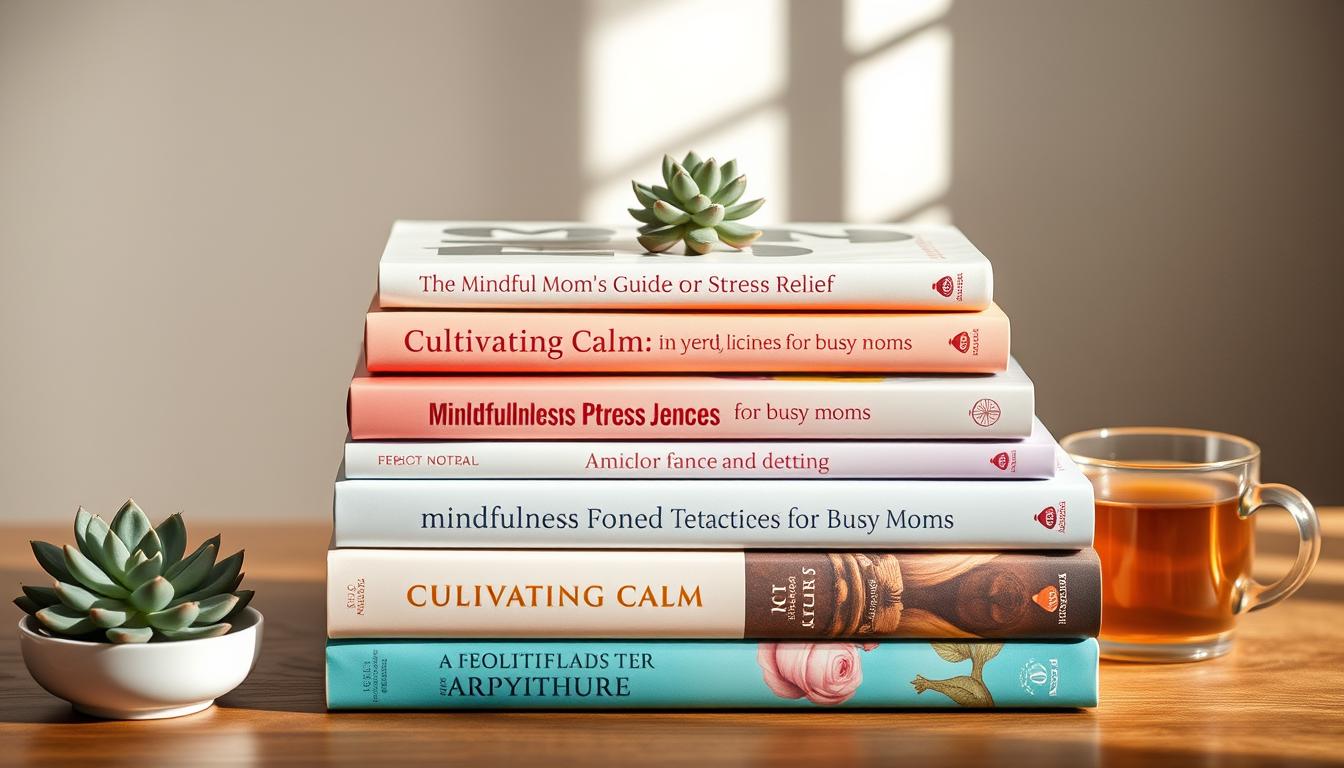Physical Address
304 North Cardinal St.
Dorchester Center, MA 02124
Physical Address
304 North Cardinal St.
Dorchester Center, MA 02124

Modern motherhood often feels like a marathon without a finish line. Between diaper changes, school runs, and never-ending chores, many parents struggle to catch their breath. The emotional weight of raising kids while managing personal needs can leave even organized individuals feeling drained.
That’s where thoughtful resources make a difference. Each book acts as a toolkit, offering science-backed methods to reduce anxiety and rebuild energy. Authors who’ve walked this path blend professional expertise with real-world parenting experience, creating strategies that actually fit into packed schedules.
You’ll find more than theory here. These guides provide actionable steps for handling tantrums calmly, carving out “me time,” and reconnecting with your core values. Many include five-minute exercises perfect for chaotic days—because self-care shouldn’t require hours of free time.
The journey through parenting reshapes identities and relationships in unexpected ways. A well-chosen book helps navigate these shifts while strengthening family bonds. It’s not about perfection—it’s about finding small moments that restore balance.
Becoming a parent introduces profound changes that touch mind, body, and identity in unexpected ways. Matrescence—the transformation into motherhood—rewires neural pathways and reshapes daily life. This transition often leaves women feeling like strangers to their former selves while caring for little ones.
Sleep deprivation and hormonal shifts create perfect storms for emotional overwhelm. Many parents report feeling “touched out” or irritable despite their deep love for their children. Caroline Boyd, a clinical psychologist, notes:
“Learning to self-soothe becomes as vital as feeding schedules during early parenthood.”
Society’s obsession with “perfect parenting” often clashes with reality. Instead of chasing ideals, mindful approaches focus on relationship building. Simple practices like breath awareness during diaper changes or naming emotions during tantrums foster connection.
| Challenge | Traditional Approach | Mindful Strategy |
|---|---|---|
| Emotional Stress | Suppress feelings | Name emotions aloud |
| Time Crunch | Skip self-care | 5-minute grounding exercises |
| Parent-Child Conflicts | Automatic reactions | Pause-breathe-respond technique |
Building family harmony starts with treating yourself kindly. When frustration bubbles up, try whispering: “This is hard, but I’m doing my best.” This gentle inner dialogue strengthens emotional resilience—for you and your children.
Remember, mindful parenting isn’t about endless calm. It’s about showing up authentically while nurturing your heart through life’s messy moments. Small acts of presence create ripples that shape your family’s emotional landscape for years.
Navigating parenthood requires more than love—it demands practical tools that fit real life. These carefully chosen guides meet parents where they are, offering science-backed methods wrapped in relatable stories.

Dr. Caroline Boyd’s book shines with postnatal yoga sequences and nutrition plans designed for sleep-deprived caregivers. Her background as a clinical psychologist and parent informs every chapter, blending massage techniques with quick meditations you can practice while holding a baby.
Naomi Chunilal takes a spiritual approach in her highly-rated guide, helping readers find calm during chaotic days. Yoga teachers praise her realistic strategies for weaving mindfulness into ordinary moments like meal prep or school runs.
These resources stand out for their flexibility. Whether you prefer evidence-based strategies or soul-nourishing practices, each author respects your limited time while addressing core challenges. From managing tantrums to rebuilding personal identity, they offer more than advice—they provide lifelines.
Leading voices in maternal wellness share transformative methods for modern caregivers. Dr. Caroline Boyd bridges clinical psychology with hands-on parenting tools, framing early motherhood as matrescence—a biological transition requiring compassionate self-care. Her guide pairs posture-correcting yoga flows with mood-boosting snacks, helping mothers rebuild strength during naptime windows.

Naomi Chunilal’s approach disarms perfectionism with humor. “Parenting isn’t about getting it right,” she writes, “but staying present through the wrong turns.” Her methods earned praise from top yoga teachers like Tara Lee, who notes:
“This isn’t theory—it’s a survival kit for real family life.”
| Challenge | Old Approach | Expert Strategy |
|---|---|---|
| Sleep Deprivation | Caffeine overload | 10-minute restorative yoga |
| Identity Shifts | Self-criticism | “Matrescence” reframing |
| Time Scarcity | Neglecting needs | Micro-meditations |
These strategies adapt across parenting phases. Boyd’s 4-7-8 breathing works during tantrums or teen conflicts. Chunilal’s “gratitude snapshots” help reclaim joy in hectic times.
Both authors agree: sustainable caregiving starts with treating yourself as kindly as your mother treated you. Their books don’t add tasks—they help reframe existing ones through lenses of growth and grace.
Parenting reshapes lives in ways no manual can fully capture. The right books become trusted companions, offering fresh perspectives when days feel overwhelming. Whether facing toddler meltdowns or teen challenges, these resources meet you where you are.
Dr. Caroline Boyd’s science-backed methods and Naomi Chunilal’s spiritual insights prove there’s no single path through motherhood. What matters is finding approaches that align with your family’s rhythm. Small shifts in perspective—like pausing before reacting—build emotional bridges with children.
Every mother deserves tools that fit real life. Short breathing exercises during carpool waits or gratitude reflections at bedtime create ripple effects. These practices don’t just ease stress—they model healthy coping skills children carry into adulthood.
Building supportive communities matters too. Sharing strategies with other parents strengthens your toolkit while nurturing collective wisdom. Together, we’re shaping a world where emotional awareness grows from birth onward.
Your journey through parenting deserves kindness, not perfection. Each mindful choice—no matter how brief—plants seeds for deeper relationships. That’s how lasting change begins: one breath, one page, one heart-led moment at a time.